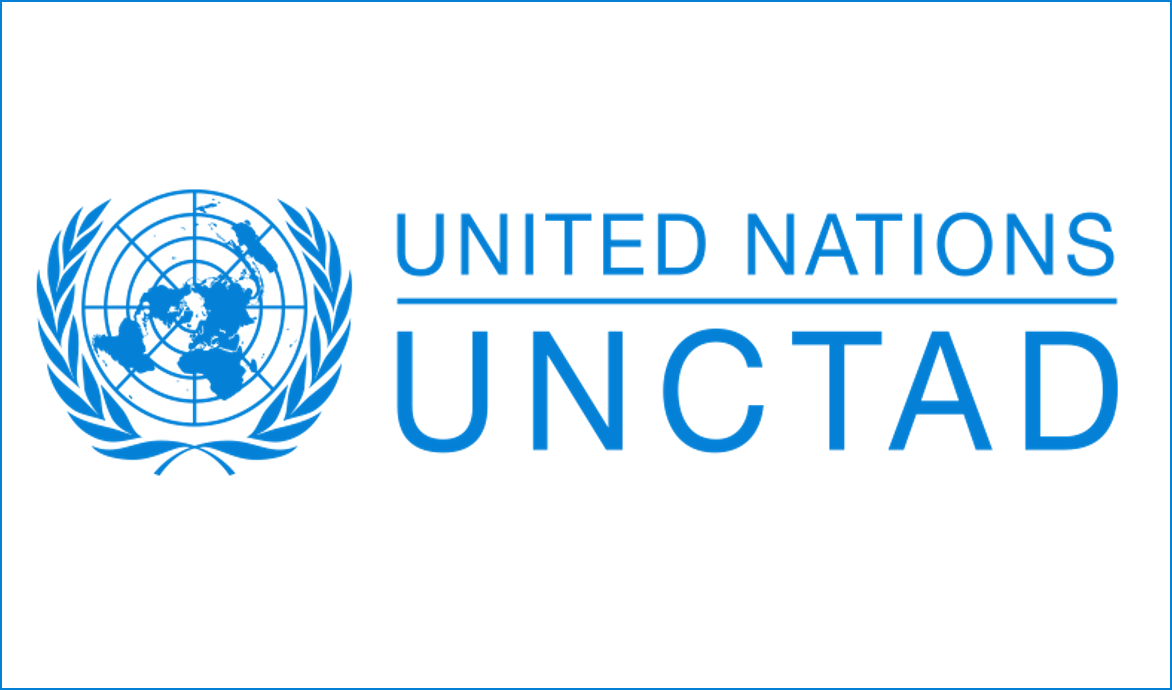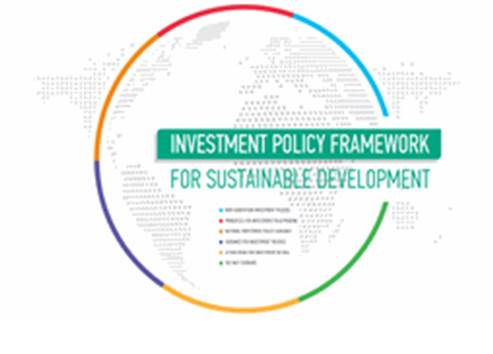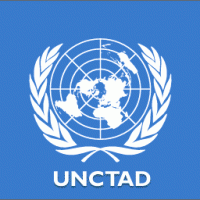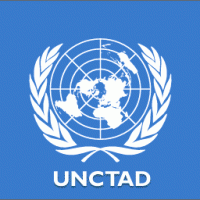Blog Archive
Investment, Institutions and IIAs: Still Gender Blind?
Shannon Lindsey Blanton and Robert G. BlantonIt is now widely recognized that women play a critical role in advancing “economic development, active civil society, and good governance.” Yet many global economic actors and institutions overlook the significance of female empowerment or have priorities that are at odds with improved women’s rights. With focus on the gender dynamic of foreign direct investment (FDI), this article present the findings of the research and uncovers the complex relationship between women's rights and FDI.
Asociaciones público-privadas y Controversias entre Inversionistas y Estados en América Latina y el Caribe – Retos y Oportunidades
Natalia Guerra, Oficial de Asuntos Económicos de la UNCTAD*Dada la insuficiencia de capacidad y recursos financieros públicos para cerrar la brecha en infraestructura de servicios básicos y lograr los Objetivos de Desarrollo Sostenible (ODS) de la Agenda 2030, la participación de la inversión privada se considera fundamental y estratégica. La modalidad de asociación público-privada (APP) ha cobrado nuevo auge en el contexto del ODS 17, relativo a la asociación para el desarrollo sostenible. Este artículo intenta repasar la experiencia de América Latina y el Caribe (ALC) en materia de APP en infraestructura de servicios básicos y caracterizar sus retos y oportunidades.
Public private partnerships in the EU: Widespread shortcomings, limited benefits.
Enrico Grassi, Principal Auditor at the European Court of AuditorsOn 20 March 2018, the European Court of Auditors published its Special Report No. 9/2018 “Public Private Partnerships in the EU: Widespread shortcomings and limited benefits”. Enrico Grassi, who served as Head of Task for the planning and execution of the audit, shares the experiences from the audit on how to make a PPP project successful.
Polish experience in PPP project development
Tomasz Korczyński, Bartosz Mysiorski and Michał Liżewski from DENTONS Warsaw OfficeThe Polish public-private partnership (PPP) market is still growing. From the day the current Polish PPP law went into effect in 2009 to the end of 2017, a total of 506 proceedings were launched to select a private partner, of which more than 117 PPP contracts were signed and implemented. Based on the experience from these project, the authors seeks to clarify what makes a PPP project successful in Poland, with recommendations and steps to be taken in to account.
What, Why and How: My understanding of PPPs
Mr. Wang Tianyi, Chief Executive Officer, China Everbright International Limited (CEI)As a researcher and implementer of PPP models, Mr. Wang have been involved in many PPP projects and have been discussing PPPs with many governmental officials, private sector representatives, financial institutions and consulting organizations from China and overseas in recent years. Based on these experiences, three key points are recurrent and cannot be stressed enough: what are PPPs, why use PPPs and how to best do PPP?
Managing States’ “Fatal Attraction” to International Investment Agreements
Mr. Surya Deva, Vice Chair, UN Working Group on Business and Human RightsIn an era of investment-driven development, almost all states are constantly looking to create an environment conducive to attracting foreign investment. Offering tax breaks, establishing special economic zones, creating single-window clearance mechanisms, climbing the ease of doing business ranking, and negotiating international investment agreements (IIAs) are some of strategies invoked by states.
Atteinte des Objectifs de Développement Durable à travers le Partenariat Public-Privé, quels facteurs de réussite pour les pays à faible revenu?
Ms. Lantonirina Erika Ramananarivo, Director of Public Private Partnership. Department, Ministry of Finance and Budget, MadagascarBien que la pertinence de l’implication effective de l’investissement privé dans le financement du développement ait été reconnue, l’adéquation du partenariat public-privé (PPP) en tant que moyen de financement adapté pour la réalisation des objectifs de développement durable (ODD) a fait l’objet de questionnement. Le PPP peut effectivement être utilisé comme moyen complémentaire de financement des infrastructures pour l’atteinte des ODD mais c’est également un mécanisme à utiliser avec précaution. Quelques facteurs de réussite sont proposés à l’endroit des Etats à faible revenu qui ont intégré l’utilisation du PPP dans leur stratégie de financement du développement.
The urgent need to rethink investment policymaking
Andrea Saldarriaga (left) and Andrea Shemberg (right). Advisors on business and human rights and visiting fellow at the Laboratory for Advanced Research on the Global Economy at the London School of Economics and Political Science (LSE).In a 2015 submission for the UN Conference on Trade and Development (UNCTAD) Expert Meeting on “The Transformation of the International Investment Agreement Regime”, we argued that much of the criticism levelled against international investment agreements (IIAs) and Investor-State Dispute Settlement (ISDS) actually reflected much wider disappointments and frustrations with what international investment was delivering (or failing to deliver) to people globally.
PPPs: The Key to Bridging the Road Investment Gap!
Mr. Magid Elabyad, MBA, Vice President, International Programs & Member Services, International Road FederationThere remains a very large gap between the world’s infrastructure needs to meet population and economic growth, and the public sector’s ability to procure commensurate funding. In the road sector, major consulting house McKinsey estimates investments need to be USD ~900 billion per year to keep pace with projected growth while current levels of investments fall short of this figure by USD 180 billion globally. Private finance is increasingly perceived as one of the main levers to narrow this gap and meet the world’s funding needs.
Development of PPPs in the Lao PDR
Souphaphone Saignaleuth, Investment Promotion Department, Ministry of Planning and InvestmentAcknowledging that both public and private investment are equally important to the development of Lao’s socio-economy, the Lao Government recognizes the importance of Public-Private Partnerships (PPPs) as a powerful tool in promoting joint development between the government and private sector in the delivery of public goods/infrastructure and services, assurance of social benefits with sustainability, and promotion of transparency and accountability principles.
The recent Argentine PPP law: benefits and challenges
Facundo Pérez-Aznar, senior researcher at the Geneva Center for International Dispute Settlement (CIDS) and Adjoin Professor of International Economic Law in the Master in International Relations at the University of Buenos AiresOn November 30, 2016, Law 27.328 on Public-Private Partnership contracts was published in the Official Gazette of Argentina. The Law outlines the general principles and certain mandatory terms to be included in any PPP contract between the National Government and private and public parties.
PPPs and ISDS: A Risky Combination
Brooke Guven, legal researcher at the Columbia Center on Sustainable Investment (CCSI) and Lise Johnson, Head, Investment Law and Policy at CCSIInvestment in infrastructure, as a general matter, is a necessary prerequisite to sustainable development. The breadth and depth of a country’s transportation, electricity and telecommunication networks along with its water and sanitation, health care, and education facilities are the backbone of economic productivity and competitiveness, and, when done well, also support a healthy human and natural environment.
Integrating the Sustainable Development Goals (SDGs) in the Regulation of Public-Private Partnerships (PPPs) in the Belt and Road Countries: A Chinese Perspective
Mr. Manjiao Chi, Professor of International Law, Law School, Xiamen University, ChinaIn 2013, China put forward the “One Belt One Road Initiative”, also known as the “Belt and Road Initiative” (BRI). While reflecting China’s glorious ancient history, the BRI has two main components: the Silk Road Economic Belt and the 21st Century Maritime Silk Road, covering nearly 70 countries in Asia, Africa and Europe.
The Importance of PPPs Towards Ghana's Development Objectives
Naa Lamle Orleans-Lindsay, Head of the Legal Division and Board Secretary of the Ghana Investment Promotion CentrePublic Private Partnership: the words most certainly have a rhyme to it unless you say it too quickly and end up twisting your tongue. Implement PPPs too hastily and lawsuits, disgruntled government officials and resentful local constituents may result.
The Energy Charter: foundation for future PPP pipelines?
Sarah Keay-Bright*, Energy Charter SecretariatPublic-private partnerships play a crucial role in facilitating private sector participation in the delivery of energy sector projects. In particular, PPPs are instrumental tools for delivering massive infrastructure needs in the era of energy transition, including achievement of the United Nations Framework Convention on Climate Change Paris Agreement goals and the UN’s Sustainable Development Goal Number 7 of universal access to affordable, reliable, sustainable and modern energy.
Regulating Development Partnerships: PPPs, Blended Finance and Responsible Investment Provisions
Dr Celine Tan and Dr Lorenzo CotulaRecent years have witnessed a paradigm shift in the policy and practice of international development finance. The new approach promotes the more active involvement of private actors into the development process, and has resulted in the proliferation of new instruments to catalyse private investments in the pursuit of the Sustainable Development Goals and other global public goods.
The fiscal costs of PPPs in the spotlight
Ms. María José Romero, Policy and Advocacy Manager, Publicly-Backed Private Finance, the European Network on Debt and Development (Eurodad)Public-private partnerships are increasingly being promoted as a way to finance development projects. To pave the way for PPPs, donor governments and financial institutions, led by the World Bank Group, have set up multiple donor initiatives to promote changes in national regulatory frameworks, to provide advice and to finance PPP projects.
Pro-Women and Pro-Poor PPPs
Mr. Jeffrey Delmon, Senior Infrastructure Finance Specialist, Infrastructure, PPPs & Guarantees, World Bank, SingaporeRemember when cigarettes were good for you, when we didn’t read food labels, when only biochemists were familiar with the word “cholesterol”. It is more difficult now, we have to ask ourselves all these obnoxious questions, to understand more about how things work, where the risks are, how we should live, but the benefit of asking these questions is huge – longer life, better life, fewer hospital visits …
Atteinte des Objectifs de Développement Durable à travers le Partenariat Public-Privé, quels défis pour les pays à faible revenu ?
Ms. Erika Ramananarivo, Director of Public Private Partnership. Department, Ministry of Finance and Budget, MadagascarLa croissance économique pour tous, la protection de l’environnement et l’inclusion sociale, telles sont les trois dimensions du développement durable auxquelles les plus hauts responsables étatiques dans le monde se sont engagés, entre autres, à atteindre dans le programme d’action adopté à Addis-Abeba en 2015. es dix-sept objectifs fixés à ce but par les Objectifs de Développement Durable sont toutefois assujettis à des impératifs de disponibilité des financements nécessaires.
Harnessing Public-Private Partnerships for Sustainable Development
James Zhan, Senior Director of the Investment and Enterprise Division at UNCTADThe Sustainable Development Goals, formulated as part of the 2030 Agenda for Sustainable Development under the auspices of the United Nations, have significant implications for investment needs. UNCTAD's Division on Investment and Enterprise is backstopping countries' efforts to harness private investment for sustainable development and launches a new investment policy hub website, which offers policymakers and other stakeholders a user-friendly, up-to-date online repository of policies, best practices and related resources that can be used to design and implement policies to maximize the contribution of PPPs to sustainable development.
Investment Facilitation: Policies and Practices
UNCTAD, Division on Investment and EnterpriseImproved investment facilitation will be vital to economic growth and achieving the Sustainable Development Goals by 2030. However, to date, national and investment policies have paid relatively little attention to investment facilitation. UNCTAD’s Global Action Menu for Investment Facilitation aims to complement existing investment policies and proposes 10 action lines with a series of options for investment policymakers and government agencies for national and international policy measures.
Investment Facilitation: A Global Action Menu
James Zhan, Director of the Investment and Enterprise Division at UNCTADUNCTAD’s Global Action Menu for Investment Facilitation to be launched officially at the World Investment Forum, 17-22 July 2016, Nairobi, Kenya
How to make IIA reform work? A formidable challenge
Joerg Weber, Head of Investment Policies Branch, Investment and Enterprise Division at UNCTADThe investment and development community faces complex questions concerning the future direction of the international investment agreement (IIA) regime. Indeed, the debate has moved on and it’s no longer a question whether or not to reform. The pressing need for systematic reform of the IIA regime is evident across different countries and various stakeholder groups. Today’s debate has to deliver answers on “what to reform, how and to what extent”.
Investment Facilitation: An Action Menu
Preliminary draft for peer review, based on UNCTAD's Investment Policy Framework for Sustainable DevelopmentMobilizing investment and maximizing its positive contribution to growth and sustainable development is a priority for most countries. Concerted efforts are required to boost cross-border investment, within the context of an overall policy framework aimed at maximizing the benefits of such investment for host countries and minimizing any negative side effects.
Reforming the IIA regime: are we getting there? Lessons from recent treaty practice
Elisabeth Tuerk, Chief of International Investment Agreements Section, Investment and Enterprise Division at UNCTADComparing treaty practice over time suggests that first steps towards reforming the IIA regime are already happening.
A draft UNCTAD working paper reviews data on the prevalence of key IIA reform options and their evolution over time.
International Tax and Investment Policy Coherence and the UN Tax Committee Meeting
Michael Lennard, Chief, International Tax Cooperation Section, FfD Office, UN DESAIn his recent contribution to this blog, Jeffrey Owens considered tax and investment as they relate to the ongoing OECD/G20 Base Erosion and Profit Shifting (BEPS) project. I wanted to explore some complementarities between the work of the Tax Committee and UNCTAD's important consideration of the relationship between tax and investment.
Tax and Investment: UNCTAD's contribution to the ongoing BEPS debate
Jeffrey Owens, Director of the Global Tax Policy Center, Institute for Austrian and International Tax LawIn June 2015, UNCTAD released its annual World Investment Report on “Reforming International Investment Governance”. This brief note first looks at the broader environment within which tax and investment issues have to be examined, and then looks at...
Time for action: concrete steps for IIA reforms
James Zhan, Director of the Investment and Enterprise Division at UNCTADThere is a pressing need for systematic reform of the International Investment Agreement (IIA) regime. As is evident from the heated public debate and parliamentary hearing processes in many countries and regions, a shared view is emerging on the need for reform of the IIA regime to ensure that it works for all stakeholders.
Getting up to speed: IIA and ISDS trends from 2014
Elisabeth Tuerk, Chief of International Investment Agreements Section, Investment and Enterprise Division at UNCTADThe IIA universe is evolving with pre-establishment commitments and sustainable development-oriented provisions on the rise. The substantive evolution of the IIA regime is also illustrated by the increasing number of countries that are reviewing their model IIAs.
Transformation of the International Investment Agreement Regime
Joerg Weber, Head of Investment Policies Branch, Investment and Enterprise Division at UNCTADThe regime of international investment agreements (IIAs) is at a critical juncture. Increasing public attention is given to IIAs that are being negotiated and concluded as well as to investor-State dispute settlement (ISDS) cases that are being brought under IIAs.
The FDI impact of IIAs - Can econometric studies help understand the relationship?
James Zhan, Director of the Investment and Enterprise Division at UNCTADOver the years, numerous empirical studies have assessed the impact of IIAs, including BITs, on FDI – with mixed results. A policy debate is now underway to reappraise previous findings and unsolved questions. An important consideration for the policy debate is the ultimate function of IIAs with respect to countries' overall development strategies. Attracting FDI is neither the prime - nor the only - role of IIAs.
Bolivia's new investment promotion law through the eyes of UNCTAD's IPFSD
Martin Dietrich Brauch, International Institute for Sustainable DevelopmentTaking the Bolivian case as an example, how might the IPFSD be further improved to help policymakers reconcile the Framework's general principles, guidelines and policy options with the national and regional specificities that arise from country's specific development contexts?
How to boost private investment in Sustainable Development Goals: UNCTAD's proposal for an Action Plan
James Zhan, Director of the Investment and Enterprise Division at UNCTADThis year’s World Investment Report (WIR) focuses on Investment in the Sustainable Development Goals (SDGs), which are currently being formulated by the United Nations in consultation with a wide range of stakeholders.
The SDGs are intended to galvanize action worldwide through concrete targets for the 2015–2030 period for social and environmental objectives; however, the participation of the private sector in investment in SDG-related fields is still relatively low.
In this regard, UNCTAD proposes a set of principles to deal with the inevitable policy dilemmas that arise with increasing involvement of private investors in many sensitive sectors or of a public service nature.
Transparency in Investor-State Arbitration: the new UNCITRAL Rules on Transparency
Julia Salasky and Corinne Montineri, UNCITRALThe merits of investor-state dispute settlement (ISDS) in general have recently been in the public limelight in the context of the negotiations of the Trans-Pacific Partnership Agreement (TPP), the EU-Canada Free Trade Agreement (CETA) and the Transatlantic Trade and Investment Partnership (TTIP). Little of the debate in the press, however, has focused on the trend towards transparency in ISDS.
The Impact of Mutual Termination of Investment Treaties on Investor Rights
Tania Voon, Andrew Mitchell and James Munro, University of Melbourne (Australia)In recent years, several States have terminated their international investment agreements (IIAs) — e.g., bilateral investment treaties (BITs) and preferential trade agreements incorporating investment provisions. Some have done so due to alarm at unexpected outcomes in investor-State cases, and others are simply updating their IIAs as they conclude wider economic partnership agreements. Indeed, UNCTAD has reported that, by the end of 2013, more than 1,300 BITs (over a third of the nearly 2,900 BITs in existence today) will be at the stage where they could be terminated or renegotiated at any time.
Prospective EU-China investment agreement and the new potential for multilateralism in international investment law
M. Bungenberg, University of Siegen and C. Titi, Université Panthéon-Assas Paris IIThe discussion of the evolution of investment relations between the European Union (EU) and China hinges on a confluence of factors susceptible to affect and shape the relationship between two of the most important global...
The Politics of Investment Treaty Ratification
Yoram Z. Haftel, Hebrew University of Jerusalem and Alexander Thompson, Ohio State UniversityForeign direct investment (FDI) is governed by a vast tapestry of bilateral investment treaties (BITs), designed to ease barriers to foreign investment and guarantee legal rights for investing corporations. About 2,700 BITs have been signed since the late 1950s and today almost every country in the world is part of this treaty network. The importance of BITs is underscored by the tremendous growth of international investment flows over the same period: from less than $100 billion in 1980, global inflows of FDI now stand at $1.5 trillion.
Investment Agreements versus the Rule of Law?
Todd N. Tucker, Gates Scholar at the University of Cambridge’s Centre of Development StudiesThe field of development economics has taken a significant shift over the last several decades towards institutional explanations for economic growth, with scholars attributing a key explanatory role to independent judiciaries...
Mobil v. Canada – Ratcheting Down the Scope of Treaty Reservations
Lise Johnson, Vale Columbia Center on Sustainable International Investment (VCC)As part of States’ efforts to strike a balance in their international investment agreements (IIAs) between the obligations they assume and the rights and policy space they wish to retain, some adjoin annexes to their treaties to protect their ability to take “Non-Conforming Measures” (NCMs). ...
Reform of Investor-State Dispute Settlement: In Search of a Roadmap
James Zhan, Director of UNCTAD's Division on Investment and EnterpriseUNCTAD published an Issues Note on “Reform of Investor-State Dispute Settlement: In Search of a Roadmap". The note addressed the increasing number of concerns that have emerged about the investor-State dispute settlement system and identified five paths for reform. It was also distributed through UNCTAD’s World Investment Network (WIN), and reached the OGEMID Listserve, a community of professionals with interest and expertise in international investment law. Our Note generated considerable discussion on this forum, reflected in the featured discussion.
Large scale agricultural investments and international investment law
Prof. Dr. Anne van Aaken, University of St. Gallen (Switzerland)Over the past years agribusiness, (sovereign) investment funds and government agencies have been acquiring long-term rights (either acquisitions or long-term leases, typically between 50-100 years) over large areas of land (typically above 1000 ha), mostly in developing countries. The development has been underpinned, on the one hand, by home state governmental concerns about food and energy security and, on the other hand, by private sector expectations of increased returns from agriculture due to rising agricultural commodity prices. ...
Third party funding in international investment arbitration
Ignacio Torterola, Of Counsel, Foley Hoag LLP (United States)Concerns about Third Party Funding (TPF) have been the subject of much attention recently. Without subtracting from the merits of TPF, a frank consideration of the pitfalls and risks faced by users of TPF in investment-arbitration is long overdue. Until recently TPF was prohibited in the common law system and it is in fact still punishable in some jurisdictions. It indeed follows that more cases would make it to court with the aid of a third party funder, than if claimants themselves had to finance cases upfront. ...
Reassessing the utility of Investor-State arbitration: what lessons should be taken from the recent Australian policy shift?
Dr. Jürgen Kurtz, University of Melbourne Law School (Australia)The zeitgeist of international investment law is one of deep and fluid change. After decades of stability (if not rigidity), many states are now engaged in a remarkable process of transforming the investment treaty network. Australia is the most recent entry to that group. In June 2011, the Australian Government publicly announced in a Trade Policy Statement that it would no longer include investor-state dispute settlement (ISDS) provisions in future trade agreements.
The challenges of denouncing BITs: why it is better to renegotiate
Federico M. Lavopa, FLACSO and University of San Andrés (Argentina), Lucas E. Barreiros and Victoria Bruno, University of Buenos Aires (Argentina)Arbitral tribunals' expansive interpretation of key disciplines in international investment law in recent years has prompted a number of developing countries to implement strategies aimed at exiting the system. These range from denouncing the ICSID Convention and withdrawing consent to jurisdiction by other arbitral bodies, to denouncing the Bilateral Investment Treaties (BITs) to which they are parties. ...
The concept of ‘necessity’ and non-precluded measures in international investment law: three lessons from WTO tribunals
Andrew D. Mitchell, University of Melbourne (Australia) and Caroline Henckels, University of Cambridge (United Kingdom)The concept of ‘necessity’ is used in many legal systems - including international investment law, international trade law and human rights law - to delimit permissible measures from prohibited measures. Analysing a measure’s necessity entails determining whether other measures are available that would achieve the objective in question, yet impact less on the protected right or interest. ...
Arab region: Are investors rediscovering regional investment agreements from the '80s?
Dr. Walid Ben Hamida, University of Evry Val d'Essonne & Sciences Po, FranceSo far investment protection and promotion agreements between Arab States have attracted little attention, but current developments in the region are about to change this. The two probably most important agreements, which both date back to the 1980s, have not been used very frequently in the past. The majority of investors from Islamic States and even the legal community in these countries and elsewhere were not aware of the existence of these treaties. ...
Corporate Social Responsibility can and should become an integral part of International Investment Agreements (IIAs)
UNCTADIIAs to date do not generally provide for obligations on investors. However, IIAs can play a role in promoting responsible investor behaviour by incorporating key elements of broadly accepted principles of corporate social responsibility.
Investment promotion agencies (IPAs) have a role to play in identifying regulatory and administrative barriers to investment
UNCTADIPAs have a role to play not only in identifying regulatory and administrative barriers to investment and in helping investors overcome those barriers, but also in pushing or leading efforts to break down barriers (e.g. by simplifying rules and procedures).
Atteinte des Objectifs de Développement Durable à travers le Partenariat Public-Privé, quels défis pour les pays à faible revenu?
Ms. Erika Ramananarivo, Director of Public Private Partnership. Department, Ministry of Finance and Budget, MadagascarLa croissance économique pour tous, la protection de l’environnement et l’inclusion sociale, telles sont les trois dimensions du développement durable auxquelles les plus hauts responsables étatiques dans le monde se sont engagés, entre autres, à atteindre dans le programme d’action adopté à Addis-Abeba en 2015.
































.jpg)































